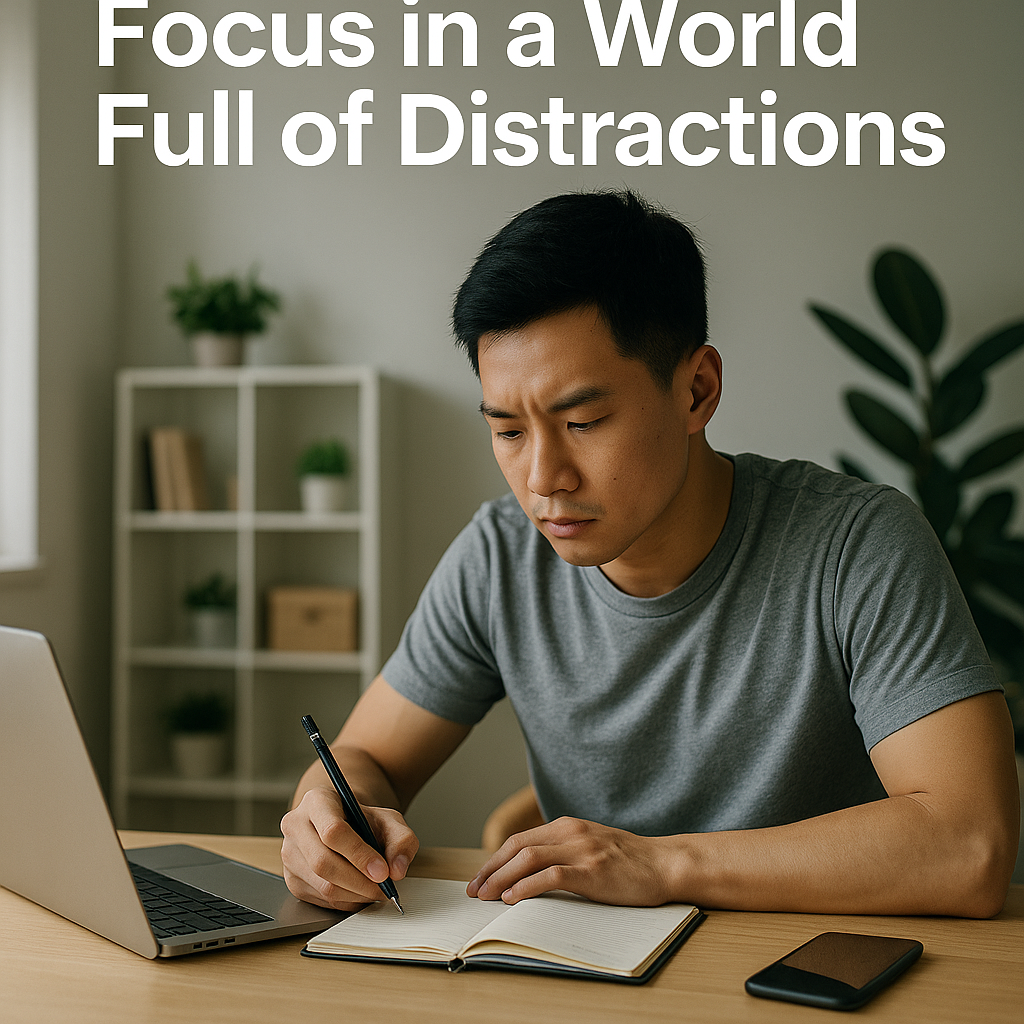We live in the most distracted time in human history. Notifications, emails, social media, and multitasking pull at your attention constantly. No wonder deep focus feels so rare.
But focus isn’t just about willpower—it’s about creating an environment and mental framework that makes concentration easier.
In this article, you’ll learn practical strategies to reclaim your focus, boost your productivity, and train your brain to stay present.
Why Focus Is Harder Than Ever
Your brain isn’t designed for 24/7 digital input. The more you multitask or switch between tabs, the more your attention span shrinks.
Common focus-killers include:
- Constant notifications
- Lack of clear priorities
- Mental fatigue
- Overwhelm from too many tasks
- Open-ended work sessions with no structure
Focus is a skill—and like any skill, it gets stronger with the right habits.
1. Create a Distraction-Free Workspace
Start with your environment.
- Silence or mute your phone
- Use website blockers (like Freedom, Cold Turkey, or BlockSite)
- Keep only the tools or documents you need in front of you
- Use headphones or white noise to block background noise
- Clean your space—visual clutter = mental clutter
Your space influences your focus more than you realize.
2. Use the Pomodoro Technique
This simple method breaks your work into intervals:
- 25 minutes focused work
- 5-minute break
- After 4 rounds, take a longer 15–30 minute break
Why it works:
- Reduces mental fatigue
- Trains your brain to expect structure
- Makes focus feel more manageable
Use a timer or apps like Focus Booster or TomatoTimer to guide you.
3. Set a Daily Highlight
Each morning, ask:
“What is the most important thing I need to complete today?”
Then build your schedule around protecting time for that one task.
When everything feels urgent, nothing gets done well. Focus on what truly matters.
4. Practice Single-Tasking (Not Multitasking)
Multitasking reduces productivity by up to 40%. Your brain switches—not juggles—between tasks.
Try this:
- Close unnecessary tabs or windows
- Work on only one project at a time
- Group similar tasks together (batching)
- Pause before switching tasks to refocus
Give your full attention to one thing—it will take less time and come out better.
5. Take Intentional Breaks
Focus isn’t about pushing non-stop. Your brain needs recovery to perform well.
Use breaks to:
- Walk or stretch
- Get fresh air
- Eat or hydrate
- Breathe deeply or meditate
- Do something playful or creative
A good break restores your energy, not drains it.
6. Train Your Mind With Mindfulness
Mindfulness improves attention span and emotional regulation.
Daily practice (even 5–10 minutes) helps you:
- Notice when your mind wanders
- Bring it back without judgment
- Stay grounded in the present
Apps like Headspace, Insight Timer, or simple breathing exercises can help you begin.
7. Track Your Attention
Awareness is the first step to improvement.
- Keep a focus journal: “When did I feel most distracted today? Why?”
- Track how often you check your phone or email
- Use screen-time apps to measure usage
- Set “focus hours” where distractions are not allowed
Patterns will emerge—and give you insight into what to fix.
Final Thought: Protect Your Focus Like a Superpower
Your attention is your most valuable resource. In a world designed to hijack it, protecting it is a form of power.
You don’t need to be perfect. You just need to be intentional.
One focused hour a day can do more than eight distracted ones.

